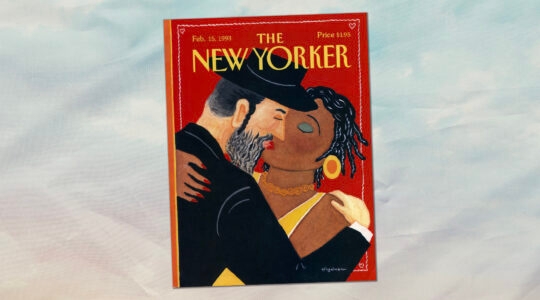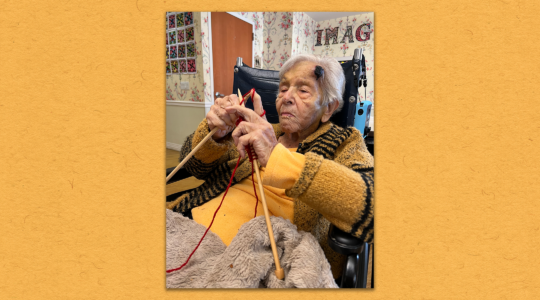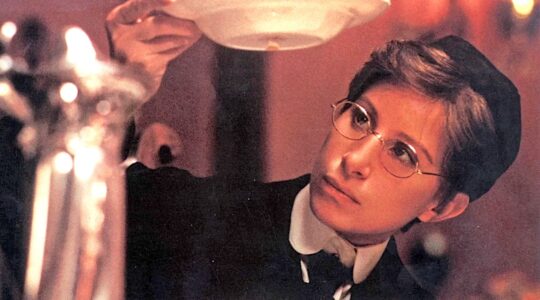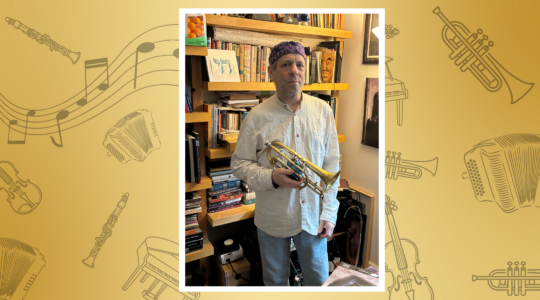On a brisk January night in 1992, The Jewish Museum and the Film Society of Lincoln Center co-hosted a screening of Judit Elek’s drama of blood libel and persecution in 19th-century Hungary, “Memories of a River.” It was the opening night of the first New York Jewish Film Festival, so when this year’s festival begins on Wednesday, Jan. 13, for its two-week run, it will mark the 25th year of the event, a significant milestone in an art that is itself only 120 years old.
In a quarter-century the numbers piled up. The festival has shown more than 675 films, features and shorts, from 43 countries, including 320 world, U.S. or New York premieres, and 62 of the films have gone on to theatrical runs.
As impressive as those numbers are, they are not the achievement of which festival director Aviva Weintraub is most proud.
“There is something irreplaceable about going into a room at the same time as a group of other people, seeing a film and discussing it with them afterwards,” she said in a telephone interview earlier this week. “That is the beauty of a film festival.”
If a public screening of a film provides an instant, if random, community, the intensely focused experience of an event like the N.Y. Jewish Film Festival — a couple of weeks of films on a shared theme in a few venues close together — can feel like a blessed retreat into a sort of cinematic summer camp.
That sense of a community in conversation is part of the appeal of themed film festivals, particularly ones that center on issues of personal identity. The NYJFF and the San Francisco Jewish Film Festival (which dates from 1980) came to maturity at the same time as similarly vanguard Asian and LGBT events. “We were among the first out of the gate,” Weintraub said.
In a commemorative essay written for the 25th anniversary, Weintraub talked about the part played by the festival in “this ongoing, evolving conversation about what it means to be Jewish.” Asked about that observation, she admitted that what really struck her when she revisited the early years of the event was that she found “more continuity and through-lines than abrupt changes.”
She explained, “There are always personal documentaries, features that look at important thinkers like Freud, Walter Benjamin, Hannah Arendt. A lot of documentaries about filmmakers and musicians, also. There are some filmmakers whose work we showed in the first or second year who were back last year — Peter Forgacs — or have new work in this year’s festival — Amos Gitai. And there are other connections. In the first year we showed a Russian film, “Sunset,” based on Isaac Babel’s “Odessa Tales,” and this year’s retrospective includes “Benya Krik,” a silent film drawn from the same material.”
She added, chuckling, “It’s an example of the universe folding back on itself, but in a good way.”
In the early years of the New York Jewish Film Festival, the programming focus was very much centered on Jewish-themed films from Eastern Europe and the former Soviet Union. As the sheer novelty of such works ebbed, a more global vision emerged. The range of films in this year’s event is indicative of that trend. The opening night feature, “Lamb,” is the first film from Ethiopia to be invited to the Cannes Film Festival. The closing night film is Natalie Portman’s adaptation of Amos Oz’s memoir, “A Tale of Love and Darkness.” In between are films from Canada, Argentina, Ukraine, Belgium, France, Germany and, of course, the U.S. and Israel. Factor in a selection of “greatest hits” from previous years’ festivals and you have well over a dozen flags flying this year alone.
“It’s apparent that there is a tremendous output of films with Jewish content all over the world,” Weintraub said, adding, “Our first concern is the quality of the film. We want to feel that every film that’s presented is good, solid filmmaking.”
“Lamb,” a first feature by Yared Zeleke, is in some ways typical of the festival’s selection policy. A coming-of-age story set in an isolated, mountainous rural region of Ethiopia, the film uses the language of a sort of global neorealism that is currently the default setting for movies produced outside the big-budget commercial mainstream. It deftly combines an economy of means with elements of family melodrama in an attempt to convey the universal elements of contemporary life without sacrificing the specificity of local detail.
Zeleke’s protagonist is 11-year-old Jew, Ephraim (Rediat Amare). Left with distant relatives by his widowed father who must seek work in the city, Ephraim’s only companion and friend is his young sheep. He finds himself at the center of a fractious family constellation, with his uncle disapproving of Ephraim’s interest in cooking, and coveting the lamb for ritual and culinary purposes. The potential for a treacly outcome is obvious, but Zeleke brings a cool detachment to the material with bracingly anti-sentimental results. From the opening long shots of boy and lamb dwarfed by the beautiful but distancing immensity of the mountains, we are in the hands of a talented filmmaker whose vision is more cosmic than tragic.
Amos Gitai has been well served by the N.Y. Jewish Film Festival since its inception, and he returns the favor gloriously with his newest film, “Rabin: The Last Day,” which will open theatrically at the end of the month. As a result of its commercial release, we will discuss it at greater length in a future issue, but suffice it to say, “Rabin” is Gitai’s best film since “Kippur.” It’s a steely, intense yet sober investigation into the machinations of the ultra-nationalist Israeli right that led to the assassination of the Israeli prime minister. Highly reminiscent of the chilly forensic rigor of the late Italian master Francesco Rosi (“Salvatore Giuliani” and “The Mattei Affair” being forebears), this is a tough-minded, unflinching work of art, the first great film of 2016.
What about the future of the festival?
“Oh, we’re definitely thinking about next year,” Weintraub said. “You want to stay ever-vigilant, because you don’t want to miss something wonderful.”
The New York Jewish Film Festival opens Wednesday, Jan. 13 and runs through Jan. 26. For schedule, tickets and information, go to nyjff.org.
The New York Jewish Week brings you the stories behind the headlines, keeping you connected to Jewish life in New York. Help sustain the reporting you trust by donating today.




